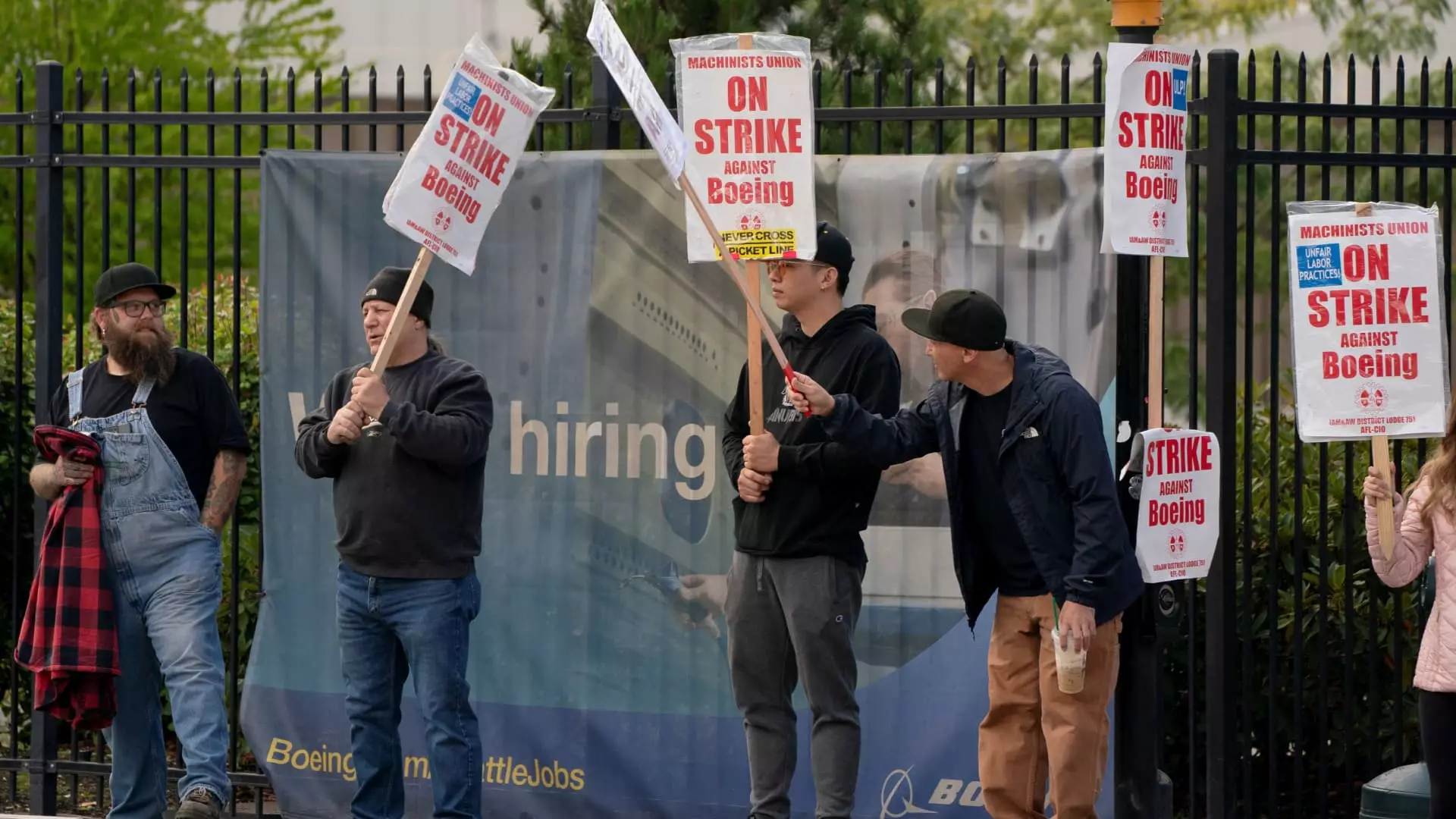Boeing, a cornerstone of the aerospace industry, is undergoing significant turmoil as it faces a labor strike initiated by over 30,000 factory workers. The strike emerged after these employees overwhelmingly rejected a preliminary labor agreement, forcing the company to halt most of its aircraft production, primarily in the Seattle region. This situation has prompted Boeing to take urgent measures to stabilize its financial standing and preserve cash amidst the ongoing labor unrest.
In response to the strike, Boeing has announced an array of cost-cutting initiatives aimed at conserving resources. These measures include implementing a hiring freeze, curtailing nonessential employee travel, and significantly reducing expenditure on suppliers. CFO Brian West outlined in communication to staff that the company will initiate “significant reductions” in supplier spending and halt most purchase orders for key aircraft models such as the 737 Max, 767, and 777. This strategic shift marks a clear indication of the ripple effects of the labor strike on the extensive network of suppliers reliant on Boeing for business.
The ripple effect of Boeing’s decisions highlights the interconnected nature of modern manufacturing ecosystems. The suspension of purchase orders and reduced supplier spending directly threatens the financial health of multiple suppliers. Boeing’s reliance on an extensive supply chain compounds the challenge as these suppliers increasingly face the burden of decreased contracts. West’s communication implied the urgency of reaching a new contract agreement with the workers to mitigate further disruptions that could jeopardize both production and supplier relationships.
The financial implications of the strike remain contingent upon its duration. With Boeing already grappling with substantial financial strains—having reported a loss of approximately $8 billion in the first half of the year—it is imperative for the company to prioritize cash conservation. The new CEO, Kelly Ortberg, has expressed a commitment to returning to the bargaining table swiftly, emphasizing the necessity for a renewed agreement to resume operations. The potential for temporary furloughs raises concerns not only for workers but also for the company’s operational integrity.
As the situation unfolds, Boeing’s financial stability is under scrutiny from credit rating agencies. Moody’s has placed all of Boeing’s credit ratings on review for possible downgrade, while Fitch Ratings has similarly indicated that a protracted strike could heighten the risk of a downgrade. This scrutiny underscores the gravity of the situation and the potential consequences that elevated borrowing costs could have for a company already burdened by significant debt.
Boeing’s current predicament reflects the complexities and vulnerabilities inherent in the aerospace sector. The interplay between labor relations, supplier partnerships, and financial management will be critical as Boeing navigates this challenging landscape. The company’s ability to reach a resolution with its workforce and restore production capacity will determine not only its short-term recovery but also its long-term sustainability in a competitive industry. As events continue to unfold, the focus will remain on how effectively Boeing can transition from crisis management to strategic recovery.


Leave a Reply